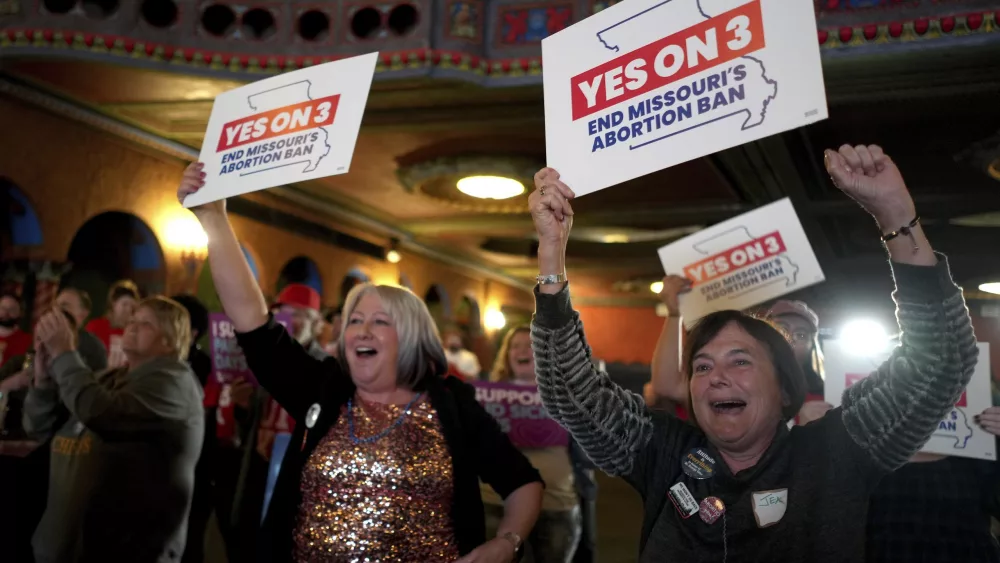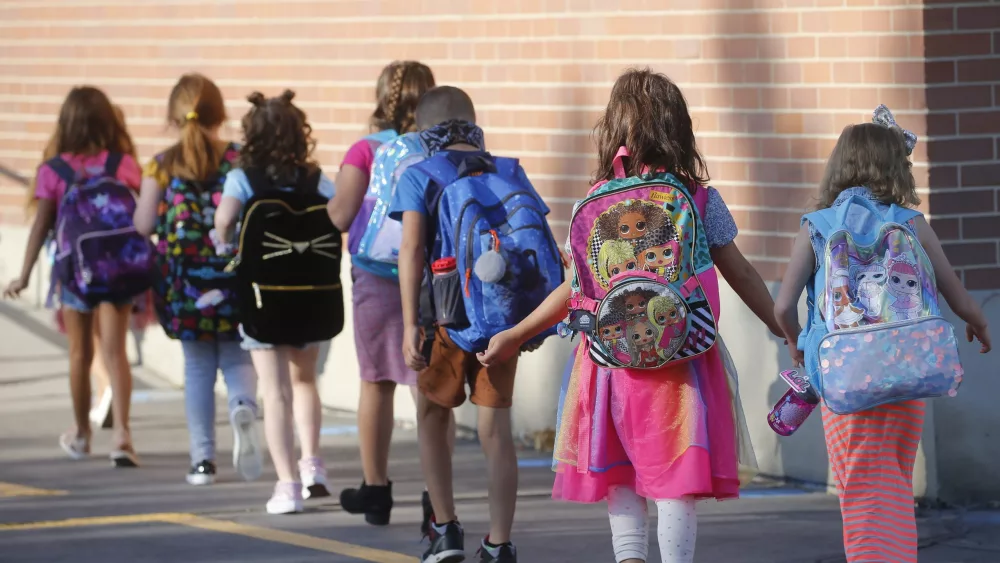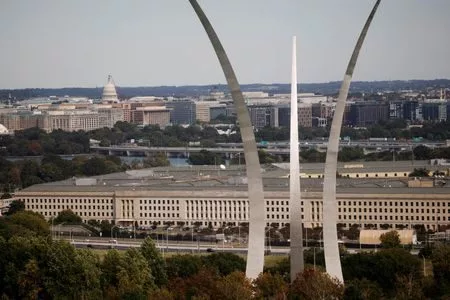Vice President JD Vance is appearing at the Munich Security Conference amid intense concern and uncertainty over the Trump administration’s foreign policy. He’s meeting Ukrainian President Volodymyr Zelenskyy later Friday for talks on how to negotiate a settlement to the Russia-Ukraine conflict.
Manhattan’s top federal prosecutor and five high-ranking Justice Department officials resigned rather than drop corruption charges against New York City Mayor Eric Adams in what the prosecutor called a “quid pro quo” aimed at forcing the Democratic-led city to comply with Trump’s immigration agenda.
And firings of federal workers are being felt in communities across the United States.
Here’s the latest:
JD Vance urged European officials to stem illegal migration on the continent during his speech before the Munich Security Conference.
Vance says the European electorate didn’t vote to open “floodgates to millions of unvetted immigrants.”
The vice president also accused Europeans of squelching free speech, saying freedom is in danger.
▶ Read more on Vance’s statements in Munich
British Prime Minister Keir Starmer told Zelenskyy Friday that Ukraine must be allowed to join NATO.
Both Trump and U.S. Defense Secretary Pete Hegseth this week undercut Ukraine’s hopes of joining, a process that the alliance said was “irreversible” less than a year ago, or of recovering its territory captured by Russia, which currently occupies close to 20% including Crimea.
“I don’t see any way that a country in Russia’s position could allow … them to join NATO,” Trump said Thursday. “I don’t see that happening.”
Trump’s musings have left Europeans wondering how — or even if — they can maintain the post-WWII security that NATO afforded them, or fill the gap in the billions of dollars of security assistance that the Democratic Biden administration provided to Ukraine since Russia’s February 2022 invasion.
▶ Read more about developments at the Munich conference
Secretary of State Marco Rubio was supposed to join Vance in the U.S. meeting with Zelenskyy Friday but was delayed when his Air Force plane had to return to Washington after developing a mechanical problem en route to Munich.
He took a different aircraft, but it was unclear whether he would arrive in time for the meeting.
Hours ahead of the Vance and Zelenskyy meeting, the Ukrainian president said a Russian drone with a high-explosive warhead hit the protective confinement shell of the Chernobyl Nuclear Power Plant in the Kyiv region.
Radiation levels have not increased, Zelenskyy and the U.N. atomic agency said.
The strike is a “very clear greeting from Putin and Russian Federation to the security conference,” Zelenskyy told reporters.
The Kremlin denied this, while Russian Foreign Ministry spokesperson Maria Zakharova accused the Munich organizers of making a “strange and politicized” decision not to invite Russia.
▶ Read more about developments at the Munich conference
Vice President JD Vance is appearing at the Munich Security Conference at a time of intense concern and uncertainty over the Trump administration’s foreign policy.
The future of Ukraine is top on the agenda following President Donald Trump’s lengthy phone call with Russian leader Vladimir Putin, when they pledged to work together to end the 3-year-old Russia-Ukraine conflict.
Vance is expected to meet Ukrainian President Volodymyr Zelenskyy later Friday for talks that many observers, particularly in Europe, hope will shed at least some light on Trump’s ideas for a negotiated settlement to the war.
▶ Read more about developments at the Munich conference
No longer in charge, Sen. Mitch McConnell has been speaking his mind, the long-serving GOP leader rejecting President Donald Trump’s more high-profile Cabinet nominees — alone at times, among the Republicans, casting his no votes.
When it came to Pete Hegseth, now the defense secretary, who faced allegations of excessive drinking and aggressive behavior toward women, McConnell said the combat veteran had “failed, as yet, to demonstrate” he was ready for the job.
On Tulsi Gabbard, who was sworn in this week as director of national intelligence, he said she has displayed “a history of alarming lapses in judgment,” citing in particular her views toward Russia, China and the security breach by former government contractor Edward Snowden.
And as Senate Republicans confirmed Robert F. Kennedy Jr. to lead the Department of Health and Human Services, McConnell, a survivor of childhood polio who used a wheelchair during the vote, opposed.
“A record of trafficking in dangerous conspiracy theories and eroding trust in public health institutions does not entitle Mr. Kennedy to lead these important efforts,” the Kentucky senator said.
This is McConnell unplugged, three weeks into the Trump administration, and his new role as no longer the Senate GOP leader but one of 100 senators. It is testing the strength, but also the limits, of his influence on the institution, where he has been a monumental presence for nearly 40 years.
▶ Read more about McConnell’s opposition to Trump’s cabinet picks
Indian Prime Minister Narendra Modi and Trump spoke about easing tariffs, resolving trade issues and shoring up defense ties in a meeting at the White House on Thursday.
Even though Trump threatened to impose tariffs, he meeting signaled New Delhi and Washington could offer concessions to strengthen economic ties at a time when Trump has been imposing strong tariffs on other trade partners.
Trump called Modi a “much better negotiator than me,” while Modi played on Trump’s “MAGA,” or “Make America Great Again,” catchphrase, saying he was determined to “Make India Great Again.”
Trump said the U.S. will increase its military sales to India and eventually provide F-35 stealth fighter jets. Meanwhile, Modi offered to double bilateral trade with Washington to $500 billion by 2030.
▶ Read more about Trump’s talks with India’s prime minister
Trump said Thursday that he wants to restart nuclear arms control talks with Russia and China and that eventually, he hopes all three countries could agree to cut their massive defense budgets in half.
Speaking to reporters in the Oval Office, Trump lamented the hundreds of billions of dollars being invested in rebuilding the nation’s nuclear deterrent. He also said he hopes to gain commitments from the U.S. adversaries to cut their spending.
“There’s no reason for us to be building brand new nuclear weapons, we already have so many,” Trump said. “You could destroy the world 50 times over, 100 times over. And here we are building new nuclear weapons, and they’re building nuclear weapons.”
“We’re all spending a lot of money that we could be spending on other things that are actually, hopefully much more productive,” Trump said.
▶ Read more about Trump’s proposed denuclearization talks
Brought to you by www.srnnews.com






